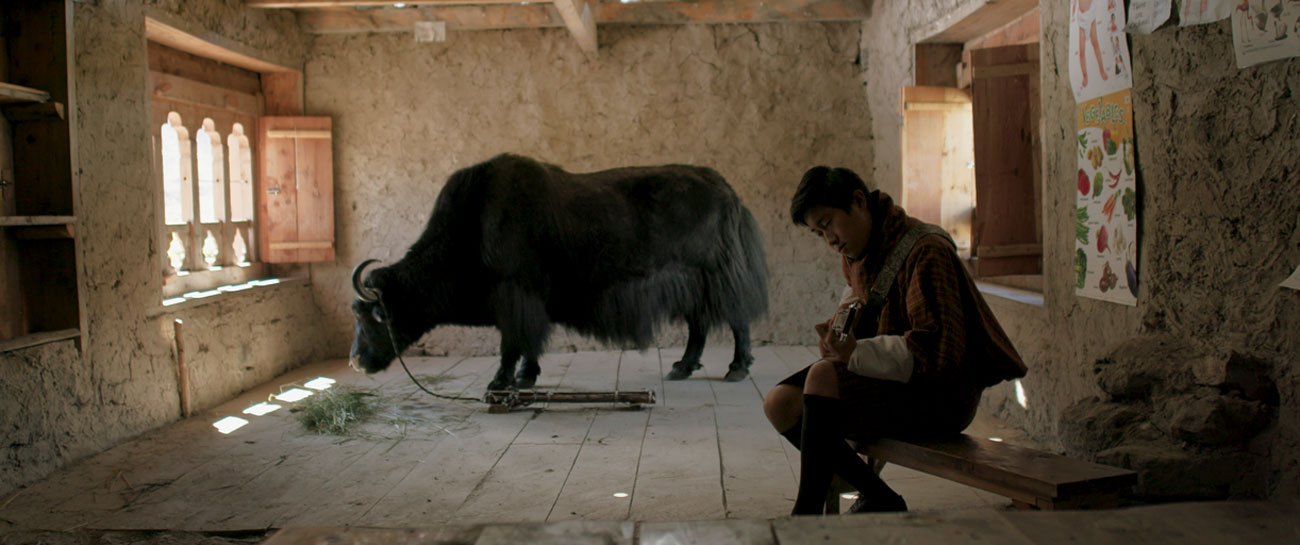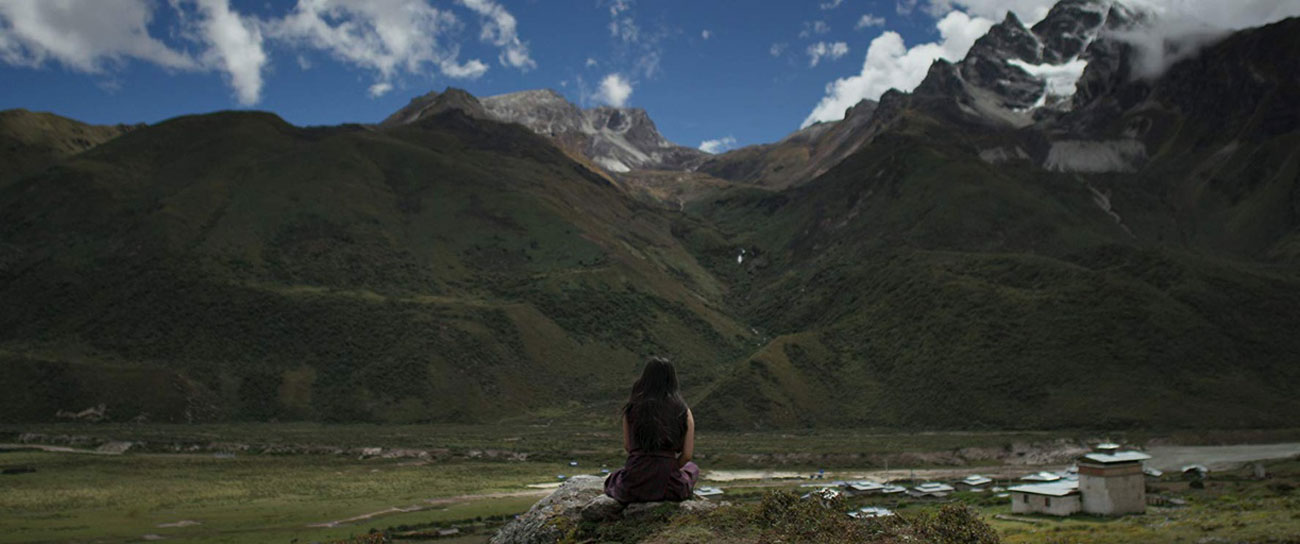Lunana: A Yak in the Classroom marks Bhutan’s sole entry in the New York Asian Film Festival’s 2020 lineup. Characteristic of his country’s isolated nature, photographer and producer Pawo Choyning Dorji has crafted his gorgeous directorial debut in one of the most secluded and undeveloped areas of the entire world. The story revolves around Ugyen Dorji (Sherab Dorji), an aspiring singer hoping to move to Australia but who has instead been conscripted into five years of government service as a teacher. Slacking on his duties in the capital city of Thimphu, he is punished by being assigned to “the world’s most remote school” in the titular northern village of Lunana. There, he begins to understand the value of his job and how, as a teacher, he can “touch the future” of these children.
The film’s 109-minute runtime is rather devoid of conflict and mainly concerned with the heartwarming methods by which Ugyen enriches the lives of Lunana’s youth. While the story of Lunana: A Yak in the Classroom spans months, it only takes a few days for him to reach his inevitable decision to stay. Afterwards, there is little tension regarding the ever-looming reality that he will need to return home. The plot never deviates from its predictable formula, but manages to remain enjoyable nonetheless. It moves along with calm and consistent pacing minus a slight lag in actually getting Ugyen to the village. Dorji tells his simple story effectively and finds wonderful moments within it. These manage to be both humorous and profound, such as Ugyen using dried yak dung to write out lessons until he and his guide Michen (Ugyen Norbu Lhendup) can build their own version of a blackboard and chalk. The gradual transformation of the school from a barren room to one teeming with life is a poignant device to convey the passage of time and externalize Ugyen’s own development.

Sherab Dorji delivers a solid performance with the material he is given, but unfortunately his character is not written with much complexity. Ugyen primarily operates as a vessel for what a good teacher can bring to the lives of their students. In the beginning, he has his sights set on the future and dreams of leaving Bhutan. This is amended by drawing his gaze further into his own country rather than focusing beyond it. Ugyen’s arc from insincere outsider to devoted educator is well-defined but fulfilled rather quickly once he arrives at the village. As a result, he is left without much development for about half of the film. While Ugyen certainly goes through seismic change, it is regrettable that he is not more fleshed out beyond the decisions we as an audience expect him to make.
The nature of fish-out-of-water films like Lunana: A Yak in the Classroom is to compare and contrast different ways of life. While many films in this subgenre tend to follow a foreigner traveling to some far off land, it is interesting to observe massive lifestyle variations within the same country, especially one as small as Bhutan. There are numerous points of extreme contrast throughout the film, such as how Ugyen starts out steeped in his own technology, allowing him to tune out the rest of the world by texting or listening to his iPod, while the village children are so unexposed to the rest of the world that they do not even know what a car is. But Dorji makes a point of showing how music, one of the film’s major motifs, works as a unifier across different types of lifestyles. Practically everyone Ugyen interacts with shares his passion for singing, giving him a point of personal connection where he thought he would find none. As a result, the film is full of beautiful songs from the village that carry deeper meaning as the narrative progresses.

Bhutan is a land of such ethereal beauty that a cinematographer working there would be hard-pressed to compose a poor shot. The peaks of the Himalayas tower behind practically every frame as clouds roll through the high-altitude landscapes. Jigme T. Tenzing’s lens captures the gorgeous vistas in vivid detail and exhibits strong, delicate compositions both in and out of Lunana’s rustic, well-lit interiors. His work here and on other Bhutanese productions like Tashi Gyeltshen’s The Red Phallus (2018) easily solidify him as one of his country’s top cinematographers. Lunana’s unique personality shines with the film’s authentic cast of natives and use of the village’s real school and other buildings. The entire crew is commendable for pulling off this difficult shoot with such grace despite their extremely limited access to electricity and other amenities.
Pawo Choyning Dorji’s Lunana: A Yak in the Classroom is more about its enjoyable journey rather than its predictable destination. In a way, the fish-out-of-water film is quite emblematic of its own subjects by exhibiting its own unique, simple beauty. While far from perfect, it manages to remain captivating due to its calming immersion in a rarely seen corner of the world. This charming film will leave you with both a warm feeling in your heart and a surprising amount of knowledge about the versatility of yak dung.
